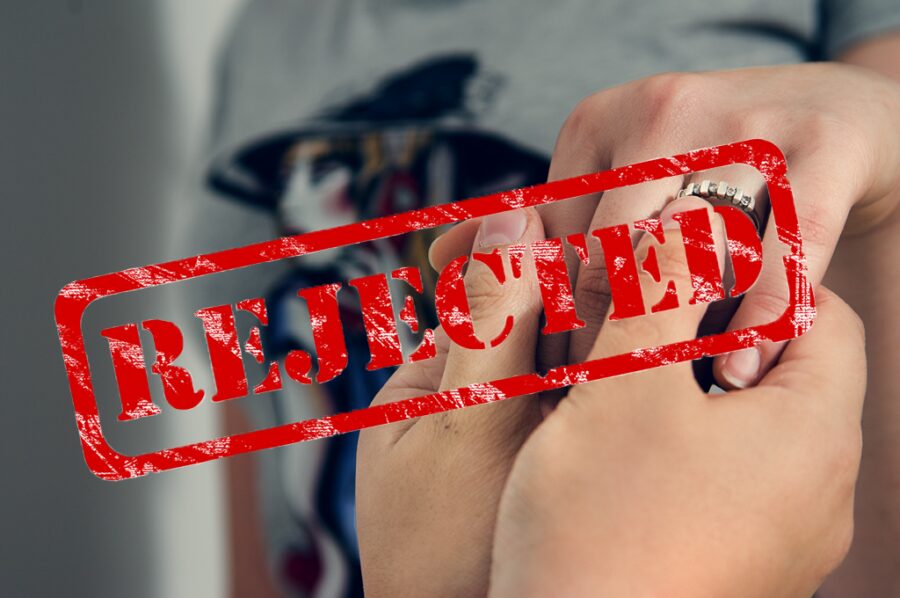Why I Won’t Marry These Men
A response to Suzanne Venker’s: “Why men won’t marry you”
A response to Suzanne Venker’s: “Why men won’t marry you”
“Where have all the husbands gone?”
That’s a question Suzanne Venker posed at the beginning of her article, “Why men won’t marry you.” To answer this question, Venker gives two “fundamental” reasons for why she believes men are suddenly “avoiding the altar in spades.”
Unfortunately, what Venker managed to do is not explain where the men have gone, but rather how, she presumes, today’s women are responsible for driving them away.
After reading Venker’s article, I found that her reasoning was oddly biased towards men, and seemed to be missing some key elements towards an explanation for today’s trends of people getting divorced, and/or choosing to remain single.
In the spirit of Venker’s terribly short, and somewhat vague representation of her opinion, I have composed two additional reasons for why I think men and women are not marrying each other.
1. Because I Don’t Have To Be Married
I, along with most human beings living in the United States, have the privilege of choosing how I live my life. I can choose to have sex when I want, with who I want, because I want to. Should I choose to marry, whether for love or not, the decision is, again, mine. We’ve come a long way since women were seen as prizes that men had worked, “really, really hard to wear down.” Those days are gone. And quite frankly, I’m glad they are.
First of all, the assumption that a woman should hold out on her sex life while her prospective “husband” should be pardoned to run around screwing “loose” women is a clear demonstration of the double standard placed on female sexuality. Should a woman have what is considered to be “too much” sex before marriage she’s a slut, but if a man has multiple sexual partners it is simply, “In his nature. He’s just being a man.”
Sound familiar?
While women have been criticized since childhood for actions deemed “unladylike,” their male counterparts have forever been excused by four words: boys will be boys.
This pardoning comes from the everlasting belief that men need sex apparently more than one woman can give, or will want. That men are somehow genetically programmed to procreate with as many women as they possibly can. Meanwhile, a woman simply wants to settle down, and be with one person her whole life. This sounds about right, right?
Unfortunately, it’s wrong. Very, very wrong.
Online magazine, Daily Life, writes, “ The truth is women want sex just as much as men do, and with lots of different partners — They’re just not being honest about it with themselves — or with anyone else.”
Daniel Berger, an American author who has investigated female desire, argues in his book, What Do Women Want? Adventures in the Science of Female Desire, “One of our most comforting assumptions… that female eros is much better made for monogamy than the male libido, is scarcely more than a fairy tale.’’
2. Because There is Nothing Wrong With Being “Unmarried”
Being married is not, and should not be, the only goal in a person’s life. Choosing to be single or committed is not the most vital decision someone can make toward becoming a decent human being. While making that decision may alter the course of your future endeavors, it does not make you any less or more of the person you were before it.
Further, marriage does not always equal love, and more importantly, love does not always equal marriage. It is unfair and rather ignorant to conclude that all happy and loving relationships must end in marriage for them to be considered important and meaningful; or that all current marriages, past and present, are the result of happy couples in love.
In fact, Dorian Solot, an executive director of The Alternatives to Marriage Project, a non-profit organization that advocates for the fair treatment of unmarried people, said during a Q&A segment with How Stuff Works, that while it is true that the percentage of unmarried Americans had increased since the 1960s, the rate of “singlehood” is not unprecedented.
“Most unmarried people would like to be married, but haven’t found the right person yet, or know that the time isn’t right,” Solot told How Stuff Works, “Many others are happily single, or in long-term unmarried relationships. People are delaying marriage more, but the change isn’t as dramatic as most people think.”
Moreover, while it may be popular to use recent data that indicates a decrease in married couples and a rise in divorces to support “the sky is falling” outlook on relationship trends in the U.S., it is not the most inclusive or adequate.
Marriage is an option for couples, and like any other choice, it has pros and cons.
It is, however, incredibly insulting as well as inaccurate to insinuate that:
A.) There are only those that are married, and those that are not. Thus eliminating all of the people who fall in between those two narrow categories.
B.) The cause for the rise in those unmarried and/or divorced is a result of women’s growing independence.
C.) Due to this rise in independent thinking, women are now only seeking marriage as a premeditated attack on men’s well being.
If a divorce, the falling out of a marriage, occurs, it is solely at the fault of the wife; then, by that reasoning, the marriage’s success, was also her sole responsibility.
This is of course, ridiculous. In a partnership , the resulting success or failure of that relationship rests on both parties’ shoulders, not just one.
Additionally, while the time when wives respected their husbands has not ended, it appears that the time when women respected other women, has. There was indeed a time when women realized that they could take care of themselves, and they expected that others, especially other women, would respect their right to make their own decisions.
Being an advocate for feminism (the continued fight for gender equality not supremacy, thank you very much) should not be something that women should be ashamed of. Nor does being a feminist mean that you will no longer care for the person, or persons, you choose to love, marry, or cohabit with. Feminism, at its most basic, is the demand that people be “cared for,” and treated equally.
There are hundreds of variables involved in finding and creating a lasting relationship with another human being, all of which are far more important than whether or not a person should be allowed to explore their sexuality, or marry, or express their freedom of “taking care” of themselves.
Ultimately, the blaming and, quite frankly, shaming of women in today’s society is not at all going to cure the problems faced by all couples, married or unmarried, nor those caused by gender roles. The only thing this article can possibly do is make women feel bad for being a woman and wanting the same respect and rights as a man.
As a person who prides herself on being committed to “improving gender relations and to providing much-needed support for the American male” Venker should know better.
It’s one thing to be an ignorant fool who babbles nonsense online. It’s quite another for that ignoramus to persuade others to follow along and continue to spread this sort of backwards, harmful thinking.
Photo illustration by Albert Serna Jr.
Substance is a publication of the Mt. San Antonio College Journalism Program. The program recently moved its newsroom over to Medium as part of a one-year experiment. Read about it here.











